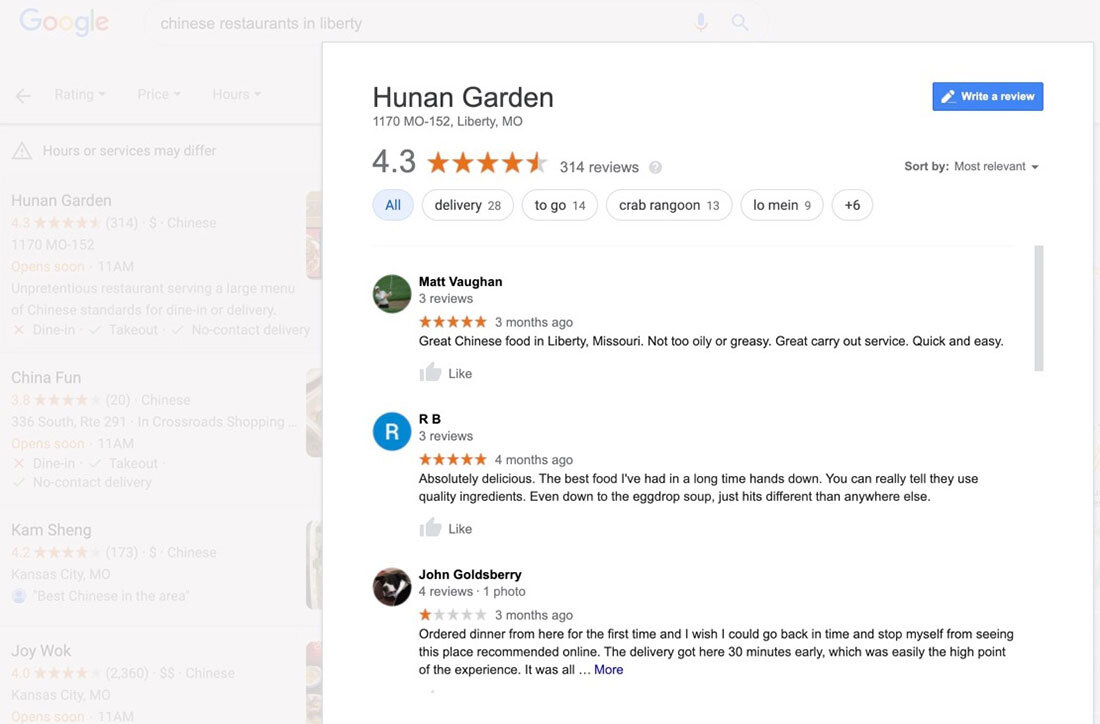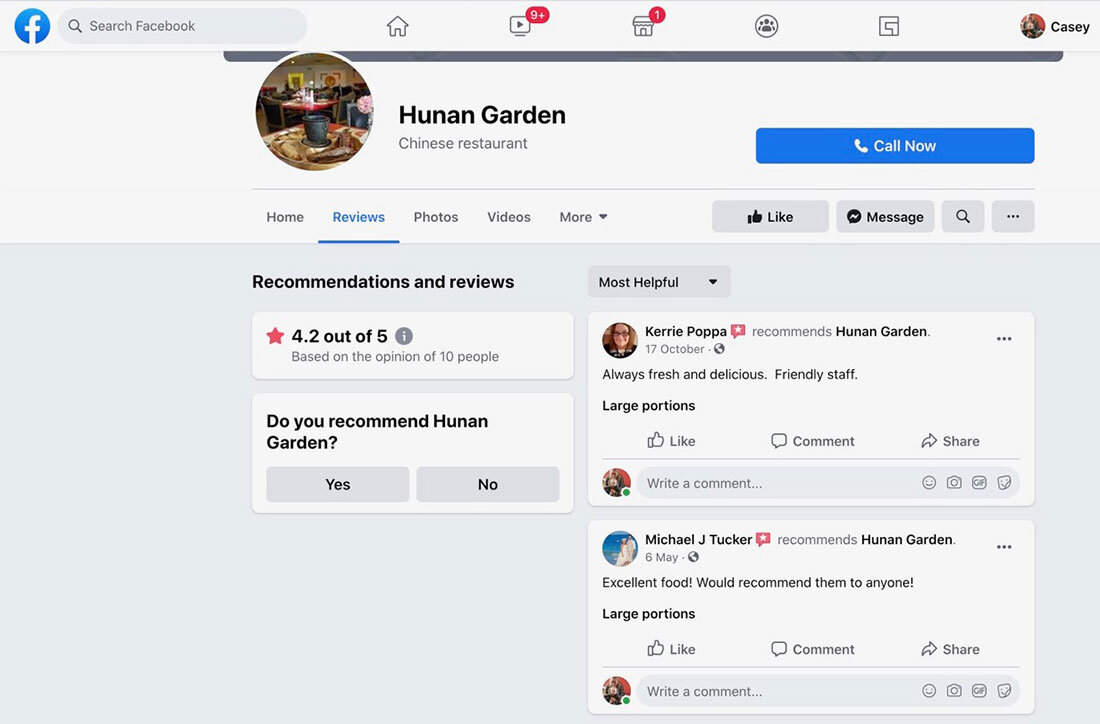The odds are you check out a few online reviews before deciding whether or not you want to eat at a new restaurant.
According to research, as many as 82 percent of consumers read online reviews for local businesses before deciding where to shop, eat, or drink. Additionally, many people trust online reviews as much or more than personal recommendations from their friends.
But are they right in placing so much trust in strangers on the Internet? And how accurate are online reviews?
Why Do People Leave Reviews?
According to Brian Boshes, a product manager at Yelp, most people who leave reviews fall into one of three categories:
Altruistic people: These are folks who are thankful for the insight they've gained from reviews and want to give back. They provide honest reviews and have good intentions. They want to help others who rely on reviews.
Aspiring influencers: These are folks who leave reviews for their own gain. This isn't necessarily a bad thing: It does not mean their reviews are untrue. Rather, they use reviews as a way to gain followers and keep track of their own experiences.
People who want to provide feedback: The last category is people who actually want to leave feedback for businesses. This can be positive or negative. Those who fall into this category leave reviews that offer thanks or specific suggestions for improvement.
Other people may leave reviews for more sinister reasons, such as competitors trying to sabotage one another.
How Can You Tell a Real Review from a Fake One?
Fake reviews can come in many forms. A viral article published by Vice News a few years ago tells the story of a man who made his fake restaurant (located in a shed!) the number one restaurant in London on Tripadvisor (and went on to serve guests frozen dinners when the restaurant opened). The idea was planted in the man's head several years earlier when he got paid by restaurants to leave good reviews for them on Tripadvisor.
Here are a few tips to help you determine whether a reviewer is real or not:
1. If possible, check out other reviews the person has left. For example, on Yelp, you can search for a business and then scroll down to the "Review Highlights" or the "Recommended Reviews." Click on the thumbnail image of the reviewer to access their profile. Then, click on their profile and go to the "Reviews" tab. If you see many fairly generic reviews that are either overly positive OR overly negative, this reviewer might be a troll, bot, or paid reviewer.
2. Look for overly black and white reviews. In other words, look for reviews that describe every experience with the restaurant as negative or positive. Most real reviewers exercise nuance in their reviews. For example, they may compliment the food and their server but mention that the food took longer than expected to prepare.
3. Be aware of the language reviewers use to describe the restaurant and their experience there. For example, competitors leaving fake reviews might use industry jargon that real reviewers would not use.
4. Check the restaurant's reviews across several review platforms. The main review sites you want to check out are
Yelp
Google
Tripadvisor
Facebook
Open Table
Zagat
If you see consistently negative or positive reviews across these platforms, then it is likely that the reviews are accurate. If one review platform has a slew of negative (or positive) reviews but most of the other platforms do not, then these reviews are likely fake.
Sample restaurant listing on Google
Sample restaurant listing on Facebook
5. Compare the star ratings to the written reviews. Most review platforms allow responders to click a number of stars, a thumbs up, etc., to quickly review a restaurant without having to write anything. If a restaurant has a consistently high star rating but a few nasty written reviews, you can probably put less weight on the written reviews.
The Importance of How the Restaurant Responds to Negative Reviews
If a restaurant receives negative reviews, how they respond is crucial.
Most restaurant review platforms allow restaurants to respond to their reviews. Some allow restaurants to write a response to the reviews they receive. Others provide moderators to mediate disputes between the people who leave critical reviews and the restaurants that want to dispute those reviewers' claims.
If the restaurant is allowed to publicly respond to negative reviews within the review platform, consumers should expect the restaurant's responses to be measured, to address the points made in the review, and to touch on how the restaurant will do better in the future.
If the restaurant suspects a review is fake, they will typically respond with something like, "This review is suspected to be fake. We have reached out to the moderator to have it removed."
If the restaurant responds with an attack, especially if the attack is personal, then the negative review is perhaps more likely to be real. Even if it isn't real, it's repulsive to see a business engage in personal attacks, so consumers might want to steer clear of such a place.
Most people turn to the internet to find reviews for the restaurants they're considering. It's crucial, then, to understand how much weight you should give the reviews you read. One of the most critical aspects is separating the real reviews from the fake ones. Once you have figured out how to tell the difference, you'll be able to pick a restaurant with confidence.




